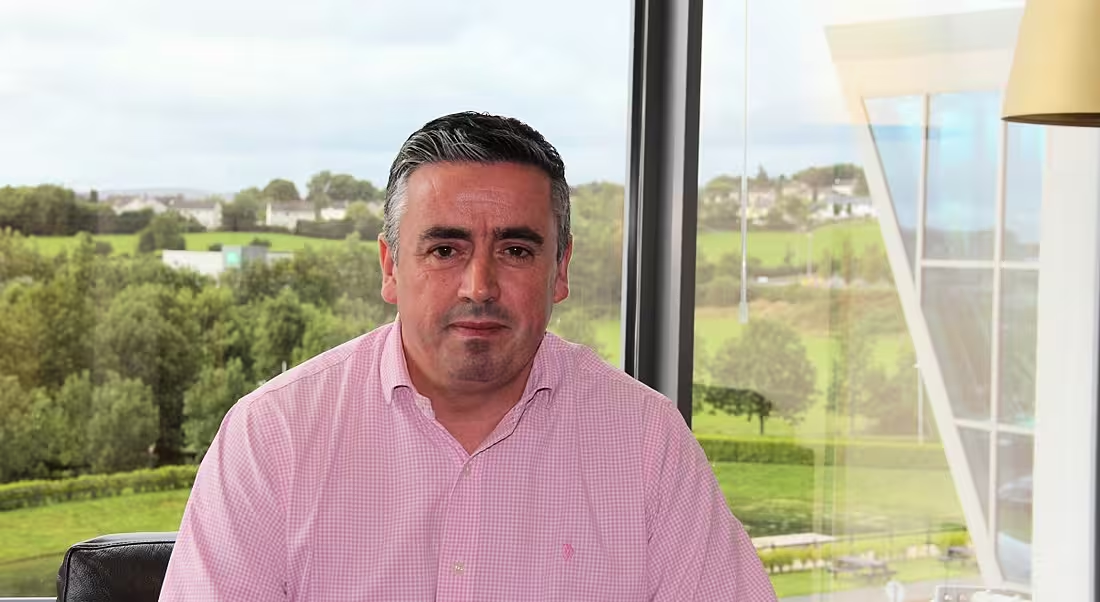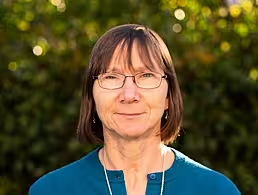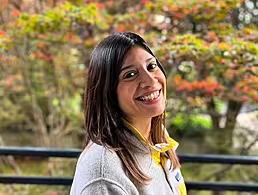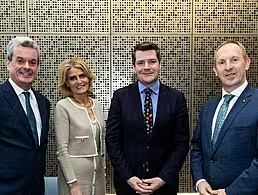Gerard Grant, director of strategic initiatives for TCS in Ireland, discusses his love of complex IT challenges and the importance of lifelong learning.
International IT services giant Tata Consultancy Services (TCS) has big plans for Donegal – even bigger than it initially forecast earlier this year.
The company is developing a strategic hub in Donegal for providing digital transformation, IT and business services to clients in Ireland and further afield. In May, TCS said it was hiring 170 new staff for its Donegal operation, but is now hoping to hire more than 200 people.
Gerard Grant, TCS director of strategic initiatives in Ireland, is a technology leader with over 25 years’ experience in building and managing infrastructure, platforms and teams.
He told SiliconRepublic.com about his career so far and what it’s like being a leader at TCS.
He recalled being “hooked on technology” at an early age through his school’s computer club. It first got an Apple Mac in 1989, and a young Grant discovered his love of tech. After graduation, he began working for a small computer company based in Letterkenny, Co Donegal.
He was part of the leadership team that set up Pramerica Systems Ireland in 2000. Pramerica was acquired by TCS in 2020 and Grant transitioned to a new leadership role in TCS.
Here, he talks about balancing his love of IT with the needs of his business-minded colleagues and clients, and gives his advice for those considering a career in tech.
‘People should expect to be challenged to keep both technical and soft skills up to date’
– GERARD GRANT
What were the biggest surprises or challenges you encountered on your career path and how did you deal with them?
You encounter different challenges at different career stages.
Early in my career I struggled with the fact that not everyone was as passionate about complex IT solutions as I was, and just wanted the business outcome, whereas I was intimately focused on the details and nuances of building, deploying and supporting the technology over the long term.
Over time I learned how to simplify the presentation of the concepts to match them with the business strategy and articulate the impact the technology would have on the business and its employees and customers.
As you move into management, it’s balancing the desire to stay technical in your field while acceding to the demands of people and financial management. Overcoming this was just a matter of narrowing the focus technologically and efficiently dealing with finances so you can focus most of your time on people.
Was there any one person who was particularly influential as your career developed?
I think everyone I worked for and with taught me something different. As a student working part-time in a small computer company in Donegal, I learned how important technical quality was as re-work was a significant cost to the business.
In large multinationals, I worked for people who were brilliant at process, stakeholder management and encouraging lifelong learning.
In my current role working for a large technology company, there’s a lot to learn in terms of managing customer success, product management and partnering with the customer to deliver large technology projects.
What do you enjoy most about your job?
The variety; my role is at the intersection of service delivery, technology design and people management. I work with colleagues and clients from all over the globe. Each one has very different challenges and opportunities and I thrive in the diversity of the technology landscape and sharing with them how we can help them on their transformation journey.
What aspects of your personality do you feel make you suited to this job?
Energy and capacity – I try to bring a lot of energy to every interaction I have. I believe it’s important whether in the early stages of a project or in the scenario where an engagement needs a reset and reboot to get it moving in the right direction.
I balance that with significant capacity to absorb both technical people and organisational challenges. I enjoy solving them and I don’t mind how complicated or long running they are – it’s great to bring people together and solve them as a team!
What can people expect from career progression in this industry?
Technology companies are a great example of the practical implementation of lifelong learning. Through my tenure I’ve studied business, law and completed a master’s degree in leadership and innovation alongside many technical and in-house leadership programmes.
People should expect to be challenged to keep both technical and soft skills up to date, and great companies like TCS reciprocate with opportunities for advancement.
What advice would you give to those considering a career in this area, or just starting out in one?
If someone is considering a career change to tech, focus on the areas with really high demand right now and great incubation or transition programmes. You can go the specific application or product route like a Salesforce and Service Now, or look to more industry-type skills like cloud and cyber.
For those starting out, gain a wide range of experience across a number of technologies and disciplines before concentrating on a specialist area. Alongside this, understand the universal skills that require continuous maintenance and practice both in terms of technical skills, people management and financial.
10 things you need to know direct to your inbox every weekday. Sign up for the Daily Brief, Silicon Republic’s digest of essential sci-tech news.




